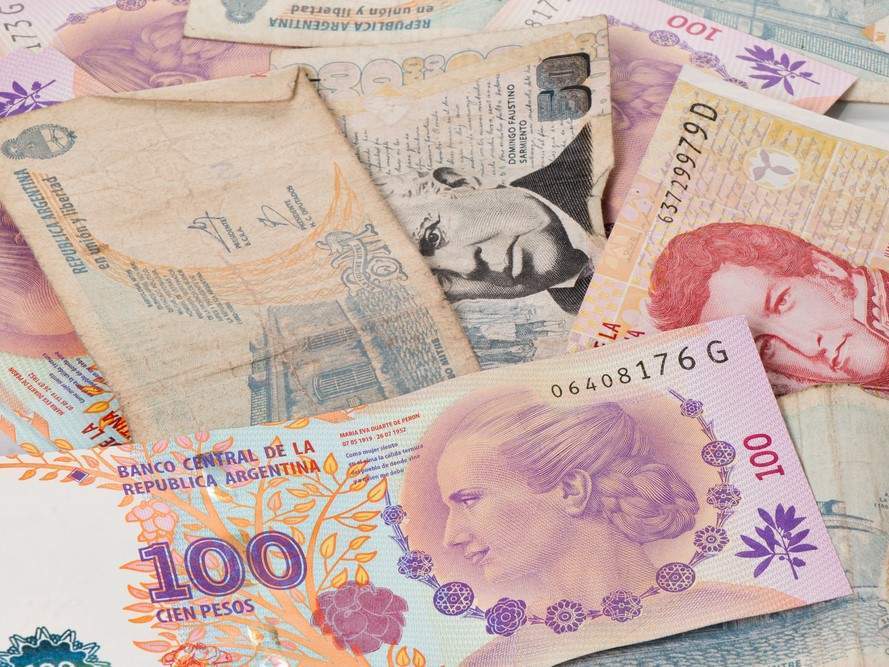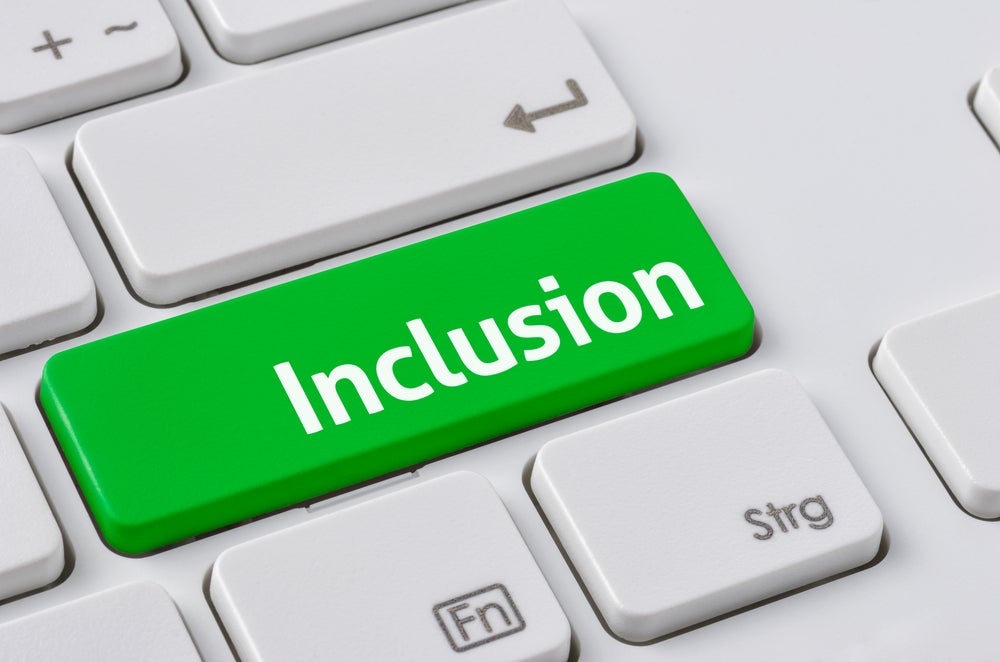
Earlier this month, Argentina’s Central Bank raised the country’s interest rate by 675 basis points to 40%.
This was the third time in less than a week that the country’s interest rate had been increased in an attempt to stabilise Argentina’s currency, the peso, which has lost more than a quarter of its value against the dollar in the past 12 months.
The peso fell 6% during the week of rate rises, which is its worst decline since June 2016.
In a statement the Central Bank said:
The monetary authority took these decisions with the objective of avoiding disruptive behaviour in the exchange rate, as well as to guarantee the disinflation process, and is ready to act again if necessary.
After the second hike that increased borrowing rates by 300 basis points on 2 May, the peso stabilised on the day but then hit a record low the following day of 22.25 per dollar, according to Financial Times’ figures.
How well do you really know your competitors?
Access the most comprehensive Company Profiles on the market, powered by GlobalData. Save hours of research. Gain competitive edge.

Thank you!
Your download email will arrive shortly
Not ready to buy yet? Download a free sample
We are confident about the unique quality of our Company Profiles. However, we want you to make the most beneficial decision for your business, so we offer a free sample that you can download by submitting the below form
By GlobalDataThe interest rate hike followed the Central Bank’s attempt to gradually sell dollars – with the bank spending some $5 billion over five days on this policy but to no avail.
The Central Bank tried to do this earlier in 2018 as well, spending a total of 10% of its reserves for this purpose.
Bruno Binetti of the think tank Inter-American Dialogue described the recent selling of dollars by the Central Bank to Verdict as “highly ineffective” and economic adviser at EM Funding, which focuses on emerging market economies.
Economic adviser at EM Funding Peter West said that this strategy did not work because “the amount they had to spend became unsustainable”.
Although the peso jumped almost 5% to a high of 21.238 versus the dollar immediately after the final hike, it weakened 2.74% to an all-time closing low of 23.34 per US dollar on the Friday.
The Central Bank’s failure to resurrect the peso and stabilise the economy through an interest rate hike has pushed the Argentinian Government under President Mauricio Macri to request a credit line from the International Monetary Fund (IMF).
This is a controversial decision since the IMF is not viewed favourably in Argentina. Many Argentinians blame the depth of the country’s 2001 default, which was the largest the world had ever seen until Greece in 2008, and the corresponding financial crisis on the institution.
In 2005, Argentinian President Nestór Kirchner paid off the country’s outstanding debt to the IMF and kicked the organisation out of the country.
This crisis is the first time in 13 years that the IMF has been invited back into Argentina.
Explaining the interest rate hike
One reason for the interest rate hike is changing in the international economic situation, particularly shifts in the US economy.
West to told Verdict:
“After falling for a long time, the dollar has appreciated [meaning that] external circumstances were becoming progressively less benign as the Federal Reserve is tightening and has created a turn-around for the dollar.”
In addition, the past few weeks have seen an increase in US interest rates, which have stayed very low since the global financial crash of 2008-09. This prompted investors to pull their money out of riskier assets.
Christopher Wylde, associate professor of international relations at Richmond University in London, told Verdict:
The economic changes were the result of interest rate increases in the US, which impact all emerging markets, but Argentina particularly.
However, West emphasises that the appreciation in the dollar was the “trigger, not the cause” of the interest rate hike of 12,075 basis points in less than a week. The peso fell even more quickly than other emerging markets, which are also deeply affected by the US economy.
Instead, he sees the main cause as Argentina’s economic woes as “[the government’s] policy, which was very dependent on benign international financial conditions”.
Macri became president in December 2015, promising to address Argentina’s underlying economic imbalances, but rather than implementing shock treatment, he wanted to reform gradually over a number of years.
He inherited an economy with large imbalances from the leftist, populist Peronist governments of Nestór Kirchner and his wife and successor Cristina Fernández de Kirchner from 2003 until 2015.
His gradualist approach required a significant amount of financing, which was possible in an international situation with low interest rates – Argentina successfully sold $100 billion worth of bonds in the past two years since Macri came to power.
According to West “everyone was very positive about Argentina because of the change in the orientation of economic policy implemented by Macri”.
However, Macri’s reliance on benign international conditions was not possible when interest rates were higher and the dollar is strong since it reduces the demand for riskier investments into emerging markets such as Argentina.
Delphine Arrighi, money manager at Old Mutual in London, agreed with West, telling Bloomberg:
Argentina, despite some significant reforms, is still left with a massive fiscal deficit and large imbalances in its external account.
That leaves the currency under pressure and the government vulnerable to market sentiment given its large funding needs.
In order for Argentina to be re-integrated into international markets and so that Macri was able to fund his neoliberal reform programme and normalise Argentina’s finances, he had to pay off the vulture funds.
After the 2001-02 financial crash, Nestor Kirchner renegotiated a significant of Argentina’s foreign debt and cut the repayment by between 70% and 80%.
Wylde told to Verdict:
“Vulture funds then bought the secondary debt and used their skills, money and contacts to take countries to court in various countries in order to get them to repay all of the debt.
“They took Argentina to the Italian and Spanish court. Eventually a US judge ruled Argentina had to pay all of the debt, including the haircut. But Argentina said no.
“As a result, International capital markets froze them out, including the Paris Club. This forced Argentina to borrow money from countries like Venezuela, which restricted its ability to grow.
“When Macri came to power and changed the growth model, the first thing he did was renegotiate with the vulture funds.”
However, paying off the vulture funds added significantly to the debt. Ozarow estimates this decision increased Argentina’s already large debt by 16 billion pesos and Wylde said it almost doubled the country’s total debt.
Wylde said three financial explanations for Argentina’s economic woes, however, the most important in his opinion was related to debt.
He said:
Most of Argentina’s debt is dollar denomination debt because people did not want to buy debt in pesos. In 2015, it represented 26% of GDP, but the current stock in 2018 is almost double at 40% of GDP.
In general there has been general nervousness by the investor community, which has primarily linked to Macri’s failure to substantially reduce inflation. He has been constrained by various domestic factors, including alliances with parties in Congress to be able to rely on a majority and the strong middle class who voted for him in the 2015 election.
Daniel Ozarow, who lectures on Latin America at Middlesex University Business School, told Verdict:
Macri’s government had to keep some of the legacies of the former government like the social programmes because it was too politically costly to scrap them.
The government was in a precarious position because it had a minority in both houses of Parliament – an even bigger minority in the Senate.
At the end of 2017, the central bank lifted the inflation targets for 2018 through to 2020 because they had missed the targets by quite a wide margin.
West sees this as a “big policy mistake.. particularly with the benefit of hindsight”. This action sent mixed signals to investors and created some uncertainty.
Founding member and director of Centennial Group Latin America and former head of the IMF’s operations in the Western Hemisphere Claudio Loser told Bloomberg:
“Investors gave Macri about a year and a half of a grace period to put the house in order. After that they started to worry.
“Now that the fiscal adjustment remains weak, inflation unwavering, and US bonds more attractive, investors are evidently losing their patience.”
Associate fellow of Chatham House’s US and Americas programme Richard Lapper agreed and told Verdict:
“Investors, domestic as well as foreign, were suddenly getting nervous about inflation, so the peso began to lose value because savers were selling their assets.
“There was a fundamental crisis in confidence in the government.”
Argentina and the IMF – a chequered history
Since the interest rate hike from 27.8% to 40% in less than a week failed to halt or correct the declining peso, Macri turned to the IMF to request a line of credit to help his government to stabilise the Argentine economy.
The president said in a televised address that assistance from the IMF would help to “avoid a crisis like the ones we have faced before.. [it] will allow us to strengthen our programme of growth and development”.
Christine Lagarde, the IMF’s managing director, said on 8 May:
“Discussions have been initiated on how we can work together to strengthen the Argentine economy and these will be pursued in short order.”
She went on to describe Argentina as a “valued member of the International Monetary Fund”.
It appears that Argentina is applying for a high-access standby agreement. They are usually based on pre-agreed conditions and involve IMF missions regularly monitoring the country’s adherence.
Initially Macri’s government tried to ask for a flexible credit line with the IMF, however, West told Verdict this type of financing is usually reserved for stronger economies with better fiscal policy records.
Under a normal standby agreement, the maximum you can get is 135% of your quote, which in the case of Argentina would be around $20 billion.
However, under a high-access standby agreement Argentina could receive $30 billion from the international organisation.
It is generally agreed upon by analysts that Macri did have any other choice at this stage.
Wylde told Verdict:
Because of who he is and because of his growth model, this is the only option for Macri.
The alternative would have been not to pay off the vulture funds or implement anti-austerity measures. But Macri’s growth model means there was no alternative.
Despite this, the government’s decision to return to the IMF is very controversial in Argentina. The IMF has become a dirty word in Argentina according to Carlos Germano, a political analyst who spoke to the FT.
He continued:
“When you talk about the IMF in Argentina, you are talking about a crisis.
“The Kirchner government worked hard to [demonise] the IMF. The vast majority now believe it is synonymous with crisis and usury.”
West said:
“The IMF period was associated with a period of crisis that exploded in 2001 when the economy defaulted.
“There is an association between the IMF and austerity and crisis.”
Argentina’s debt default in 2001-2 totalled $100 billion and in the resulting financial crisis one in five Argentinians lost their jobs, the peso lost two thirds of its value, banks froze deposits, more than 20 people died in protests and looting and the country had five presidents in two weeks.
One year before the default the country had negotiated a $40 billion loan with the IMF and thus the organisation and its strict policies are blamed by many for the resulting crisis.
Binetti told Verdict: “Rightly or not, the Fund is held responsible by a majority of the Argentine population for the economic, political and social meltdown of 2001.”
Wylde said:
“In 2001-02, the IMF was blamed for how the economic crisis manifested itself.
“The IMF is the zeitgeist. It already was before 2001, but the crisis consolidated itself.”
Lapper said:
“Argentine people think the IMF is associated with disasters of the past because when the IMF give you money it comes with conditions.
“The 2001 crisis is in living memory for many Argentinians… they remember things completely faling part and this creates extreme uncertainty and nervousness [in the country].”
Since inviting the IMF back into Argentina is such a controversial decision for Argentina, it could potentially jeopardise Macri’s future. Binetti described the invitation as a “high-risk gamble” and notes “turning to the Fund could send the message that the government is not in control”.
In a poll by Buenos Aires-based consultancies Berensztein and D’Allessio IROL 75% of more than 1,000 Argentines surveyed in May said they would look unfavourably about turning to the IMF.
However, Macri has managed to retain strong levels of domestic support according to polls. His support has been falling, but his opposition has so far failed to capitalise on his weakness and gain competitive levels of support.
Binetti does point out that the IMF could be what successfully unites the Peronist opposition. He said:
“Until now, Peronists were struggling to come up with a message to run against Macri. Turning to the IMF makes that task much easier.”
However, Macri’s ability to survive until the 2019 election and beyond will almost entirely depend on the impact that the deal with the IMF has on Argentina’s economic situation and what conditions are imposed.
In the words of Lapper, he is facing a “confidence crisis” and the big question is whether he can restore confidence.
Juan Cruz Díaz, managing director at Cefeidas Group, a Buenos Aires risk consultancy, told the FT:
“On Wall Street they may think this a good thing, but it will be much harder to sell this politically.”
Ignacio Labaqui, an analyst at Financial Times-owned risk consultancy Medley Global Advisors, said:
“If the arrangement with the IMF manages to improve investor sentiment towards Argentina, so that this episode of exchange-rate volatility will have been just that, an episode, then the cost for the government both in terms of economic growth and popularity will be limited.”
The government is reinforcing to the Argentine public that the IMF will not impose harsh conditions on the country in return for the loan. Finance Minister Luis Caputo said the financing is a “preventative” measure ahead of a financial crisis and the IMF will not request deep cuts to the country’s budget.
Sergio Berensztein of Buenos Aires consultancy Berensztein told Bloomberg that the political damage to Macri will depend on how much autonomy the government retains over economic policy following the loan.
In a press conference on 9 May, Marcos Pena, cabinet chief, said: “You have to be very careful with the false rumours and the information that is circulating. There has been no suggestion from the IMF to impose conditions or the possibility of receiving a loan. They are technical conversations which will take place with complete transparency.”
The IMF has said that the peso will not be subject to a target exchange rate as part of a standby agreement with Argentina.
An IMF spokesperson said:
“Argentina has a floating, market-determined exchange rate, and we fully support that.”
“The exchange rate should continue to be determined by market forces, with the central bank continuing to use all the policy tools that are at its disposal.”
Also, Argentine markets rebounded after the Treasury Minister Nicolas Dujovne met with IMF officials to discuss the terms of the credit line on 10 May; the peso gained for the first time in four days.
However, analysts are not confident that the gain will persist since it will take a few weeks and possibly months for the standby agreement with the IMF to be agreed.
Already the currency has begun to depreciate once more; it opened the week commencing 14 May more than 6% weaker at a record low of 24.90 per US dollar.
Ozarow told Verdict:
Marci was trying to present Argentina as a serious capitalist country that business can be done in, but…its international credibility has been damaged by the return to the IMF.
In addition, it seems that the money they get from the IMF will have to be spent on renegotiating bonds with foreign creditors rather than on other mechanisms that will prevent further domestic crises.
Ozarow said:
“Argentina is renegotiating bonds with foreign creditors on 15 May, which represents 55% of Argentina’s debt and is worth £30 billion – which is the same amount of money as they will get from the IMF. They are actually going to be back to square one again, but they are going to have all the conditionality tied to the IMF loan.”
This situation could be mitigated by financing from other multilateral lenders which Finance Minister Caputo has hinted at. The lenders mentioned were the World Bank, the Inter-American Development Bank (IDB) and Corporacion Andino del Fomento (CAF).
However, this could bring more conditions that may be unacceptable to the Argentine public which is known for both mobilisation on the streets and voting for radically different policies when the current administration is failing to achieve what it promised.






